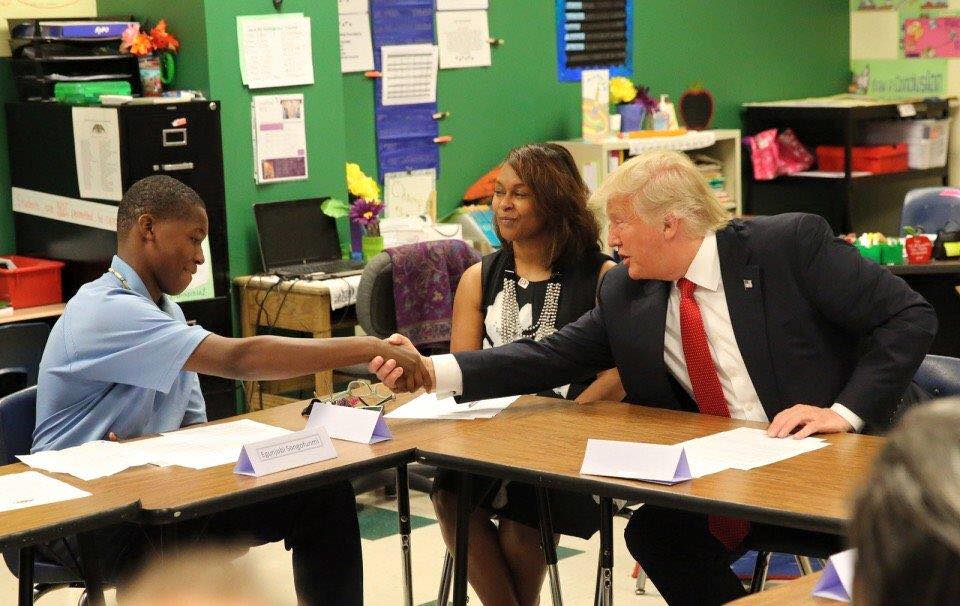
September 28,2016
the staff of the Ridgewood blog
Ridgewood Nj, Governor Chris Christie School Funding Fairness Formula Catches the Eye of the Ridgewood Board of Education. In the latest RPS news letter Board President Sheila Brogan devoted a significant amount of space to the Christie Fairness formula and the failure of the Abbott School districts .
Sheila Brogan’s Legislative Report September 2016
Lately, there has been much discussion in Trenton about state funding for school districts. Governor Christie has asked the courts to give the state relief from the School Funding Reform Act of 2008 (SFRA) and to allow the NJDOE Commissioner relief from statutory and contractual impediments that negatively impact on the thorough and efficient
The first link below will bring you to the Abbott Memorandum, filed for Governor Christie, asking the NJ Supreme Court for relief from the current funding formula. It is 95 pages, but worth the read.
Some of the issues discussed in the memorandum are —
#1 More funding does not equal higher student achievement in the School Development Authority (SDA) districts (formally the Abbott districts). The SDA districts have 22.8% of all NJ students and they receive 59% of the pre-K through grade 12 school aid.
#2 The most important factor for quality education is effective teachers. Districts must be allowed to have systems in place to attract and retain effective teachers. Statutory and contractual impediments to this must be eliminated. Essentially, the memorandum calls for eliminating LIFO (last in, first out) when there is a reduction in force (RIF) of the teaching staff. The memorandum also calls for streamlining the process of removing tenure teachers who are ineffective. It requests that the court allows the Commissioner to override contractual impediments in teacher contracts that negatively impact on student achievement.
In another document released last week, the State Auditor listed flaws in the way the state distributes school aid. There were four recommendations:
#1. School funding should be distributed based on current district data — for example — current enrollment and district demographics. The state is not using current data. Eighty percent of districts are receiving less aid than what they should receive under the current state aid formula, School Funding Reform Act of 2008 (SFRA).
#2. Special Education funding is not being distributed on the actual number of special education students in a district. Under the 2008 state aid formula, the state started using the census model to distribute money using the assumption that every district had a14.78% special education classification rate. Some districts have higher classification rates. According to the report in 2015, 234 districts, and in 2016, 258 districts, had actual classification rates that were more than10% higher than the state’s rate used for funding. This funding is not tied to actual need.
#3. Pre-school aid should be adjusted for actual enrollment. According to the report, in 2016, 30 districts over estimated enrollment and overpayments to these districts from the state amounted to $32.9 million
#4. The per pupil cost for preschool ranges from $2,036 to $27,663 and this disparity leads to imbalances in funding. It should be noted that districts receiving pre-school funding can offer half day or full day programs creating disparity in the educational experiences and opportunities offered these students.
This report is linked below.
Finally, Senate President Sweeney and Senator Ruiz introduced a concurrent resolution, SCR119, to establish the State School Aid Funding Fairness Commission consisting of six members who would be appointed by the Senate President (2 members ,one of whom would represent the NJEA), Speaker of the General Assembly (2 members, one of whom would represent a NJ education professional association), Senate Minority leader (1 member), and General Assembly Minority Leader (1 member). The Senate approved SC119 on Thursday. The Commission would be charged to study the following issues:
#1. the impact of School Funding Reform Act of 2008 (SFRA) adjustment aid and state aid growth limitation provisions;
#2. the tax levy growth limitation and the ability for school districts to adequately fund operating expenses;
#3. the per pupil administrative cost limits and its impact on district staffing and operations;
#4. determining local fair share amounts and how property tax abatements impact fair share; and
#5. the ability for districts that are at or above adequacy budget to lower their tax levy if given additional state aid
The report must be issued no later than June 30, 2017 with its findings, recommendations, and proposed legislation. The legislation would be introduced in the Senate and the Assembly. It would not be referred to committees. The proposed legislation would be given three readings and must be approved or rejected by the Senate and the Assembly without changes or amendments.
Over the next 5 years, $500 million would be added to the state budget for school districts to give districts 100% of the aid as determined by SFRA.
The process for the commission will include three public hearings to gather input and then three hearings after the report is issued to elicit public input on the findings, recommendations, and proposed legislation.
It now goes to the Assembly for consideration.
https://www.nj.gov/governor/
https://www.njleg.state.nj.us/





